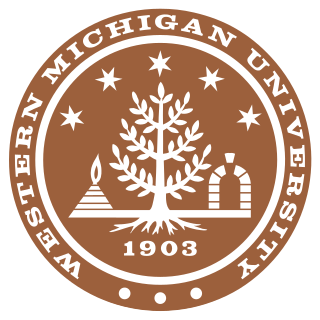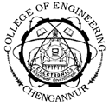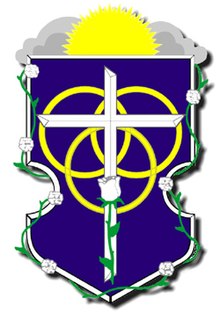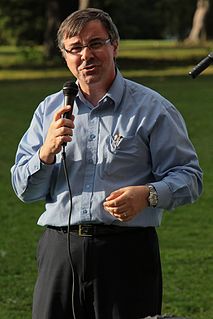Related Research Articles

Michigan Technological University is a public research university in Houghton, Michigan. Its main campus sits on 925 acres (374 ha) on a bluff overlooking Portage Lake. Michigan Tech was founded in 1885 as the first post-secondary institution in the Upper Peninsula of Michigan and was created to train mining engineers to operate the local copper mines. Science, technology, forestry and business have been added to the numerous engineering disciplines, and Michigan Tech now offers more than 130 degree programs through its five colleges and schools. It is classified among "R2: Doctoral Universities – High research activity".

Western Michigan University (WMU) is a public research university in Kalamazoo, Michigan. It was established in 1903 by Dwight B. Waldo. Its enrollment, as of the Fall 2019 semester, was 21,470. It is classified among "R2: Doctoral Universities – High research activity".

Kettering University is a private university in Flint, Michigan. It offers bachelor's and master's degrees in STEM and business fields. Kettering University undergraduate students are required to complete at least five co-op terms to graduate. Students gain paid work experience in a variety of industries with Kettering's more than 550 corporate partners, and graduate with professional experiences accompanying their degree.

The University of Michigan–Flint is a public university in Flint, Michigan. It is one of the two regional campuses of the University of Michigan operating under the policies of the Board of Regents. The University of Michigan in Ann Arbor is located 55 miles to the south; the other regional campus is in Dearborn, which is located 72 miles to the southeast. U of M-Flint is classified among "Doctoral/Professional Universities."

Saginaw Valley State University (SVSU) is a public university in University Center, Michigan. It was founded in 1963 as Saginaw Valley College. It is located on 748 acres in Saginaw County's Kochville Township, approximately 5.5 miles north of downtown Saginaw.

The Government College of Engineering Chengannur, commonly known as CEC, is an engineering institute in the state of Kerala, India. The college is located in Chengannur, Alappuzha. The college was set up under the auspices of the Institute of Human Resources Development (IHRD), is affiliated to the APJ Abdul Kalam Technological University and the courses are recognised by AICTE and accredited by NBA, the National Board of Accreditation, India.
Science, technology, engineering, and mathematics (STEM), previously science, mathematics, engineering, and technology (SMET), is a broad term used to group together these academic disciplines. This term is typically used when addressing education policy and curriculum choices in schools to improve competitiveness in science and technology development. It has implications for workforce development, national security concerns and immigration policy. The science in STEM typically refers to two out of the three major branches of science: natural sciences, including biology, physics, and chemistry; and formal sciences, of which mathematics is an example, along with logic and statistics. The third major branch of science, social science such as: psychology, sociology, and political science, are categorized separately from the other two branches of science, and are instead grouped together with humanities and arts to form another counterpart acronym named HASS - Humanities, Arts, and Social Sciences. Psychology however is considered a major part of STEM, besides the other 2 subjects. In the United States/ United Kingdom education system, in elementary, middle, and high schools, the term science refers primarily to the natural sciences, with mathematics being a standalone subject, and the social sciences are combined with the humanities under the umbrella term social studies.

National Institute of Technology, Rourkela, formerly Regional Engineering College, Rourkela is a publicly funded premier institute of higher learning for engineering, science and technology located in the steel city of Rourkela, Odisha, India. It is one of the 31 National Institutes of Technology in India and has been recognized as an Institute of National Importance by the National Institutes of Technology Act, 2007. It is ranked 16 in the NIRF Rankings 2020 of Indian engineering universities.

Alpha Omega Epsilon (ΑΩΕ) is a social and professional sorority for women in engineering and technical sciences. The sorority was founded by twenty-seven female engineering students at Marquette University on November 13, 1983, and four months later on March 22, 1984, it became a recognized organization on the Marquette University campus. The idea of uniting female engineers and technical scientists of all curricula as Alpha Omega Epsilon has spread to other campuses. As a result, there are currently forty six active chapters and one colony of the sorority. Alpha Omega Epsilon enjoys a close working relationship with its male counterpart, Sigma Phi Delta (ΣΦΔ).

Robofest is an autonomous robotics competition for 4th ~ 12th graders. It is similar to FIRST Lego League (FLL), but while FLL limits the student's robots to Lego Mindstorms robots, Robofest allows the student to use any robotics system, parts, materials, or even custom electronics, in some of the events. Note that FLL students are required to use parts manufactured by Lego only, preventing the use of such aids as string or glue. Another important difference is that Robofest games have UTF components. Students must solve the unveiled tasks and factors within 30 minutes work-time without external help. Lawrence Tech's Robofest was founded by Computer Science Professor Dr. Chan-Jin Chung in 1999-2000 academic year and is sponsored by Lawrence Technological University and other sponsors. Robofest is also held internationally, in countries including Brazil, Canada, China, Colombia, Ecuador, Egypt, Ethiopia, England, France, Ghana, Greece, Hong Kong, Hungary, India, Kenya, Lebanon, Macau, Malawi, Mexico, Morocco, Nigeria, Philippines, Saudi Arabia, Singapore, South Africa, South Korea, Taiwan, and UAE. Teams who win their regional event are welcome to participate at the worldwide tournament held at Lawrence Technological University in Michigan. ROBOFEST is a registered trademark of Lawrence Technological University in the USA.

RoboJackets is a group of Georgia Tech students, faculty, and alumni that aims to enhance the understanding of the field of robotics and its applications. The team also strives to increase of the number of students exposed to it. The group, located in the Student Competition Center, allows students to engage in a wide range of engineering-related activities, and has members from almost every engineering major of study offered at Georgia Tech. Students work collaboratively in a group environment and have the abilities to pursue projects on their own.
The University of Nottingham Ningbo China (UNNC) is a university situated in the city of Ningbo in the coastal province of Zhejiang, near Shanghai, China. It is affiliated with the University of Nottingham in the United Kingdom.

The Balochistan University of Information Technology, Engineering, and Management Sciences (BUITEMS) is a public research university in Quetta, Balochistan, Pakistan. The Government of Balochistan chartered the university on 18 July 2002. The university officially commenced its academic activities in October, 14th 2002 with three undergraduate programs in Computer Science, Computer Engineering and Business Administration with an initial enrollment of 90 students. The university is structured around four campuses that focus on Engineering, Information Technology Business, Arts, and Life Sciences consisting of 30 academic programs at undergraduate and graduate levels. As of spring 2017, the university has grown to a student strength of 9197, and a faculty of 600.

The biennial USA Science & Engineering Festival is a free science festival held in Washington, D.C.. The festival is the largest celebration of science, technology, engineering, and mathematics (STEM) disciplines in the United States. Serial Entrepreneur Larry Bock and senior directors of the Lockheed Martin Corporation founded the festival.

The College of Engineering and Physical Science (CEPS), is one of seven faculties – referred to as “colleges” – at the University of Guelph in Ontario, Canada. CEPS operates on the University of Guelph main campus, one of four across Ontario, and has one of the largest faculty, staff, and student populations of the seven colleges at U of G.

Michigan Technological University's campus sits on 925 acres on a bluff overlooking Portage Lake.
STEAM fields are defined science, and technology, interpreted through engineering, and the (liberal) arts, and based in mathematics. Variations of definitions for the "A" exist, but no other definition formally defines the arts with research or links the disciplines together as a whole with research. STEAM is designed to integrate all subjects with each other for a way to teach across the disciplines. These programs aim to teach students innovation, to think critically and use engineering or technology in imaginative designs or creative approaches to real-world problems framed in social studies. STEAM programs add art to STEM curriculum by drawing on reasoning, ethics and design principles and encouraging creative solutions, effectively removing the meaning of the STEM distinction as the term now includes nearly all academic fields, yet still oddly leaving some behind.
STEM.org is an American multinational education company based in Southfield, Michigan. The organization was founded in 2001 by Andrew B. Raupp under the name "Initiative Science," despite conducting outreach programs in all STEM fields. By 2014, STEM.org had been recognized by the United States Senate for having worked with over 100,000 students, through partnerships with schools involving collaborative educational activities. In K-12 education, STEM.org has worked with private, public, and charter schools.

Out in Science, Technology, Engineering, and Mathematics, Inc., abbreviated oSTEM, is a 501(c)(3) non-profit professional society dedicated to LGBTQ+ individuals within the science, technology, engineering, and mathematics (STEM) community.
References
- ↑ Sulewski, Stan. "Science & Engineering Festival at Gull Lake High School kicks off 'Year of Science'". Mlive. Retrieved 19 November 2014.
- ↑ Hannah, Bill. "TREKKERS learn and have fun". Mesabi Daily News. Retrieved 19 November 2014.
- ↑ Benda, Moe. "They'll knock your socks off! MIND TREKKERS come to Virginia". hometownfocus.us/. Hometown Focus. Retrieved 19 November 2014.
- ↑ Ray, Amanda. "Delta College hosting second annual Dow Great Lakes Bay Regional Science & Engineering Festival". mlive.com. M Live. Retrieved 19 November 2014.
- ↑ "USA Science & Engineering Traveling Festival - Powered by Michigan Tech Mind Trekkers". usasciencefestival.org. Archived from the original on 2 September 2014. Retrieved 19 November 2014.
- ↑ Modzelewski, Mark. "The Michigan Tech Mind Trekkers Traveling Science Festival Begins". scienceblogs.com. Science Blogs. Retrieved 19 November 2014.